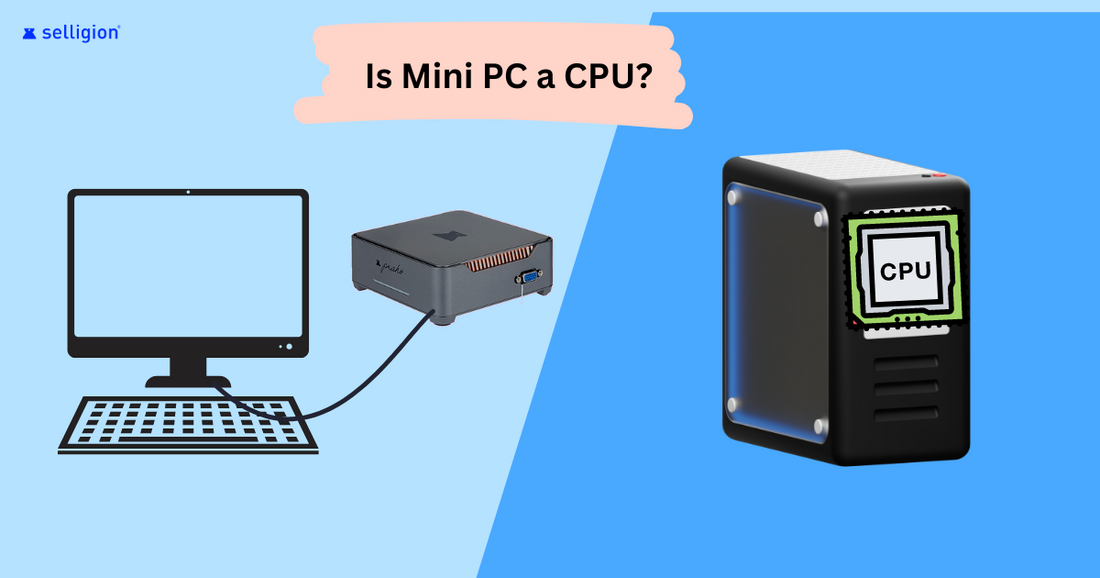
Is mini PC a CPU?
Share
When it comes to computers, there's a whole bunch of technical terms that can leave us scratching our heads. But one of the most common sources of confusion is the difference between mini PCs and CPUs. These terms might sound similar, but they're actually quite different. Understanding the difference between mini PCs and CPUs is important because it helps us know how computers function and what each part does.
Let's dive in and make things crystal clear!
What's a CPU?
The CPU is often referred to as the brain of the computer. It's a hardware component that performs most of the processing inside a computer. It executes instructions to carry out tasks such as arithmetic, logic operations, and input/output operations.
What's a Mini PC?
A mini PC, also known as a small form factor PC or compact PC, is a small-sized personal computer designed to take up minimal space while still providing full functionality. These devices typically include components such as a CPU, memory (RAM), storage (hard drive or SSD), and various ports for connectivity.
Is a mini PC the same as a CPU?
No, they're not the same. A mini PC has a CPU, but it's just one part of the whole mini PC setup. A mini PC has many other parts that work together to make it run smoothly.
What's Inside a Mini PC?
A mini PC typically comprises a variety of components, including:
- CPU: As mentioned earlier, the CPU is a crucial component responsible for executing instructions and performing calculations.
- Memory (RAM): RAM (Random Access Memory) is used to store data that the CPU needs to access quickly temporarily.
- Storage: Mini PCs come with various storage options, such as HDDs or SSDs, where data is stored permanently.
- Graphics Processing Unit (GPU): While some mini PCs rely on integrated graphics, others may include a dedicated GPU for improved graphical performance.
- Connectivity: Mini PCs feature ports for connecting peripherals such as monitors, keyboards, mice, and other devices.
- Power Supply: Every computer requires a power supply unit (PSU) to provide the necessary power for operation.
Advantages of Mini PCs:
Mini PCs are great for many reasons:
- Space Efficiency: They're small, so they fit well in small places like on a desk or in a living room.
- Energy Efficiency: Mini PCs are designed to be efficient, so they don't use as much power as bigger computers.
- Versatility: You can use a mini PC for many things, like watching movies, working, or even in businesses.
In Conclusion:
In summary, while a mini PC includes a CPU as one of its essential components, it is not accurate to equate the two terms. A mini PC encompasses a broader range of hardware components that work together to provide computing functionality in a compact form factor.
The Selligion Mini PC, starting at just ₹17,999, offers an affordable yet powerful computing solution. With its compact design high-performance features, and ample storage options, it's the perfect choice for users seeking a versatile and budget-friendly computing experience.
Buy your Selligion setup today: Buy here
